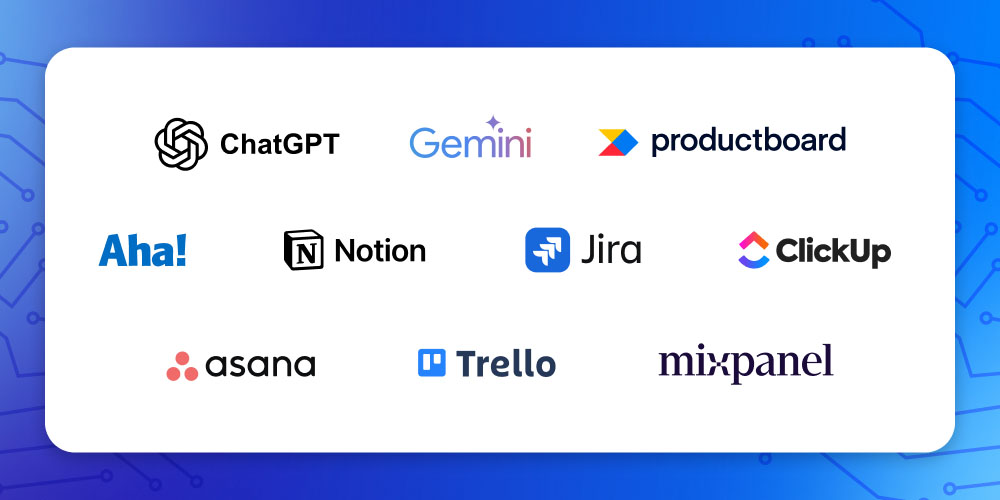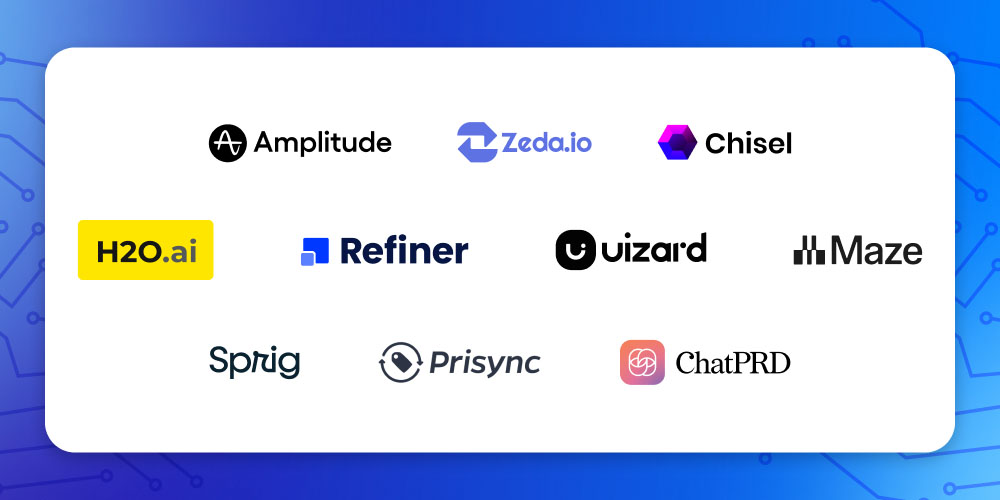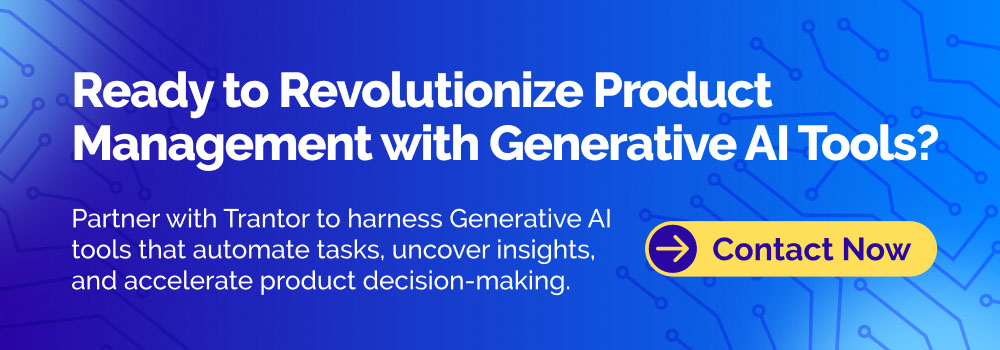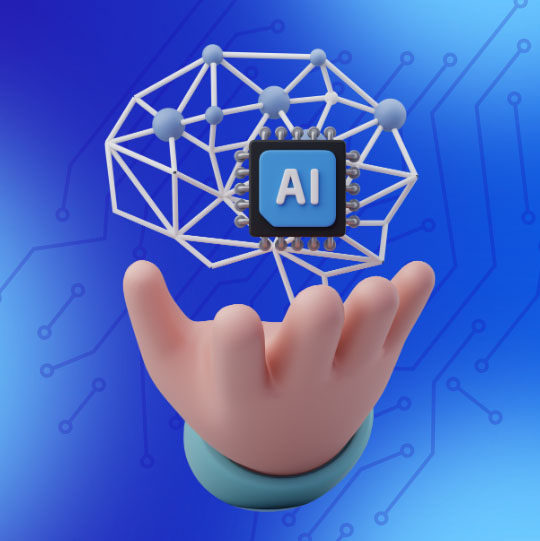Artificial Intelligence, zBlog
Top 20 Generative AI Tools for Product Managers: Roadmaps to Research?
trantorindia | Updated: November 4, 2025

Generative AI tools are transforming the way product managers work, from ideation and research to roadmapping and execution. In 2025, leveraging generative AI tools is no longer optional—it’s essential for staying competitive, driving innovation, and delivering products that meet real user needs. This guide covers the top 20 generative AI tools for product managers, explores how they can be used for research and roadmapping, and provides actionable insights, case studies, and best practices.
Why Generative AI Tools Are Essential for Product Managers
Product managers face a constant challenge: balancing strategic vision with tactical execution, all while navigating complex data, stakeholder expectations, and fast-moving markets. Generative AI tools help by automating repetitive tasks, uncovering insights from vast datasets, and accelerating decision-making. According to Forrester’s 2024 Product Management Survey, more than half of product management decision-makers are already using generative AI internally, and nearly half expect its impact to increase in the next two years.
Top 20 Generative AI Tools for Product Managers
1. ChatGPT
ChatGPT is a foundational generative AI tool for product managers. It can help with brainstorming, summarizing research, drafting product requirements, and even generating user stories. Its ability to process natural language makes it ideal for ideation and communication.
2. Google Gemini
Google Gemini (formerly Bard) is a conversational AI that provides real-time industry insights, competitor analysis, and content generation. It’s especially useful for product managers who need to stay updated on market trends and generate high-quality documentation.
3. Productboard AI
Productboard AI aggregates customer feedback from multiple sources, classifies feature requests, and uses predictive analytics to forecast adoption rates. This tool helps product managers build customer-centric roadmaps backed by real user needs.
4. Aha! AI
Aha! AI is a powerful product roadmap tool that uses natural language processing to automate requirement gathering and prioritize features based on customer impact and revenue potential. It’s ideal for aligning cross-functional teams and creating data-driven roadmaps.
5. Notion AI
Notion AI enhances productivity by automating note-taking, summarizing meetings, and generating structured documents. Its integration with databases and templates makes it a versatile tool for product managers who need to organize and share information efficiently.
6. Jira AI
Jira AI optimizes agile workflows by predicting project bottlenecks, estimating task completion times, and automating ticket management. It’s a must-have for product managers who rely on Jira for sprint planning and backlog management.

7. ClickUp AI
ClickUp AI offers intelligent task automation, AI-powered writing assistance, and risk analysis. It helps product managers streamline workflows, craft clear product specifications, and optimize workload distribution.
8. Asana AI
Asana AI brings intelligent automation to task and project management. Its AI-powered insights engine analyzes past project performance to offer recommendations for workflow improvements and identify recurring inefficiencies.
9. Trello AI
Trello AI focuses on lightweight, visual project management with AI-driven automation and insights. Its intelligent card sorting and categorization features help product managers organize tasks dynamically based on priority and deadlines.
10. Mixpanel
Mixpanel provides real-time user behavior insights, event tracking, and A/B testing capabilities. It’s a game-changer for product managers who need to understand user engagement and optimize product features.
11. Amplitude
Amplitude’s AI-powered analytics toolkit helps product managers navigate the data landscape, extract actionable insights, and run experiments efficiently. Its Data Assistant and Ask Amplitude features streamline the process of translating business questions into actionable insights.
12. Zeda.io
Zeda.io leverages AI to revolutionize product discovery and planning. It aggregates data from diverse sources, generates insights, and helps teams prioritize effectively, making it easier to ship the right product.
13. H2O.ai
H2O.ai is a transformative force in AI and machine learning, offering advanced algorithms for predictive modeling and data-driven decision-making. It’s ideal for product managers who need to automate complex data tasks.

14. Chisel
Chisel is an all-in-one AI platform for product managers, combining robust AI smarts with deep workflow support. It automates PRD drafting, feedback synthesis, and team alignment, freeing up time for strategic work.
15. Uizard
Uizard is an AI-assisted prototyping tool that helps product managers create wireframes and prototypes quickly. It’s perfect for rapid iteration and user testing.
16. Maze
Maze is an AI-assisted user research tool that helps product managers gather insights from user testing and feedback. It’s ideal for validating product ideas and improving user experience.
17. Sprig
Sprig is another AI-assisted user research tool that provides real-time feedback and insights. It’s useful for product managers who need to understand user needs and preferences.
18. Refiner.io
Refiner.io is a user satisfaction and feedback tool that helps product managers collect and analyze customer feedback. It’s essential for building products that meet real user needs.
19. Prisync
Prisync is an AI-assisted pricing research tool that helps product managers optimize pricing strategies. It’s ideal for competitive analysis and market research.
20. ChatPRD
ChatPRD acts as an on-demand Chief Product Officer, drafting detailed PRDs and refining existing documents. It’s a valuable tool for product managers who need to create high-quality product requirements quickly.
How Generative AI Tools Enhance Product Management

Automating Repetitive Tasks
Generative AI tools can automate tasks like drafting PRDs, summarizing meeting notes, and generating user stories. This frees up product managers to focus on strategic initiatives and creative problem-solving.
Uncovering Insights from Data
AI-powered analytics tools like Mixpanel and Amplitude help product managers extract actionable insights from vast datasets. These insights can inform product decisions and drive innovation.
Accelerating Decision-Making
Generative AI tools can process and analyze data in real time, providing product managers with up-to-date information and recommendations. This accelerates decision-making and reduces the risk of delays.
Improving Collaboration
AI-powered collaboration tools like Notion AI and ClickUp AI enhance team communication and alignment. They automate updates, generate reports, and integrate natural language processing for seamless team communication.
Real-World Case Studies
Case Study 1: L’Oréal’s Generative AI-Powered Product Innovation
L’Oréal used generative AI tools to accelerate product development, deepen personalization, and scale content creation. By integrating GPT models and proprietary creative platforms, L’Oréal reduced product content development cycles by 60% and increased user interaction time by 35%.
Case Study 2: Coca-Cola’s “Create Real Magic” Campaign
Coca-Cola partnered with OpenAI and Bain & Company to launch the “Create Real Magic” platform, which invited global participation in a creative campaign using ChatGPT and DALL·E 2. The campaign garnered global media coverage and established Coca-Cola as a leader in collaborative innovation.
Case Study 3: Stitch Fix’s AI-Generated Style Recommendations
Stitch Fix deployed generative AI models to create style recommendation notes and propose outfit combinations. This reduced stylist content creation time by over 50% and improved client satisfaction.
Practical Tips for Using Generative AI Tools

Start Small
Begin by automating simple tasks like drafting PRDs or summarizing meeting notes. As you become more comfortable, gradually expand your use of generative AI tools to more complex tasks.
Focus on Customer Needs
Use generative AI tools to gather and analyze customer feedback. This will help you build products that meet real user needs and drive innovation.
Stay Updated
The field of generative AI is evolving rapidly. Stay updated on the latest tools and best practices by following industry blogs, attending webinars, and participating in online communities.
Collaborate with Your Team
Generative AI tools are most effective when used collaboratively. Share insights and recommendations with your team to ensure everyone is aligned and working towards the same goals.
Frequently Asked Questions
What are generative AI tools?
Generative AI tools are software applications that use artificial intelligence to generate content, automate tasks, and provide insights. They are used by product managers to streamline workflows, accelerate decision-making, and drive innovation.
How can generative AI tools help product managers?
Generative AI tools can help product managers automate repetitive tasks, uncover insights from data, accelerate decision-making, and improve collaboration. They are essential for staying competitive and delivering products that meet real user needs.
What are some examples of generative AI tools for product managers?
Examples include ChatGPT, Google Gemini, Productboard AI, Aha! AI, Notion AI, Jira AI, ClickUp AI, Asana AI, Trello AI, Mixpanel, Amplitude, Zeda.io, H2O.ai, Chisel, Uizard, Maze, Sprig, Refiner.io, Prisync, and ChatPRD.
How do I get started with generative AI tools?
Start by automating simple tasks like drafting PRDs or summarizing meeting notes. Gradually expand your use of generative AI tools to more complex tasks as you become more comfortable.
Are generative AI tools secure?
Most generative AI tools are secure, but it’s important to follow best practices for data privacy and security. Always review the privacy policies of the tools you use and ensure that sensitive information is protected.
Conclusion
Generative AI tools are revolutionizing the way product managers work, from ideation and research to roadmapping and execution. By automating repetitive tasks, uncovering insights from data, and accelerating decision-making, these tools help product managers stay competitive and deliver products that meet real user needs. As the field of generative AI continues to evolve, product managers who leverage these cutting-edge tools will be better positioned to drive innovation, improve efficiency, and deliver exceptional products to market.
As the field of generative AI continues to evolve, product managers who embrace these technologies early will be better equipped to drive innovation, improve efficiency, and deliver exceptional products to market. At Trantor Inc, we’re committed to helping product teams harness the full potential of AI-driven solutions to streamline workflows, enhance decision-making, and accelerate product success. To explore how generative AI is transforming modern business functions, you can read our in-depth insights on generative AI in marketing or build a stronger foundational understanding through our guide on how generative AI works
At Trantor Inc, we are committed to helping product managers harness the power of generative solution to drive innovation and deliver exceptional products. Visit Trantor to learn more about our solutions and services.




